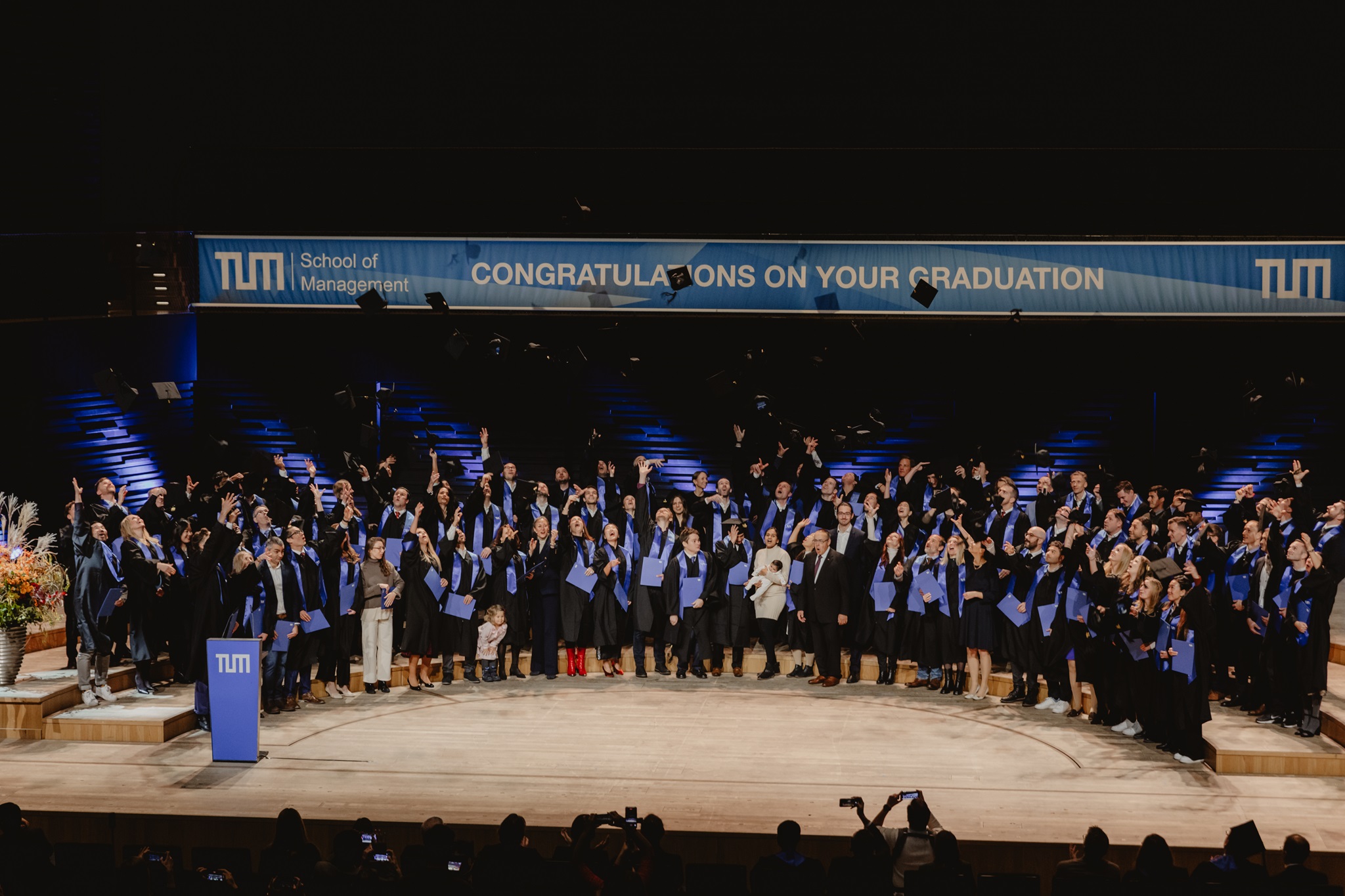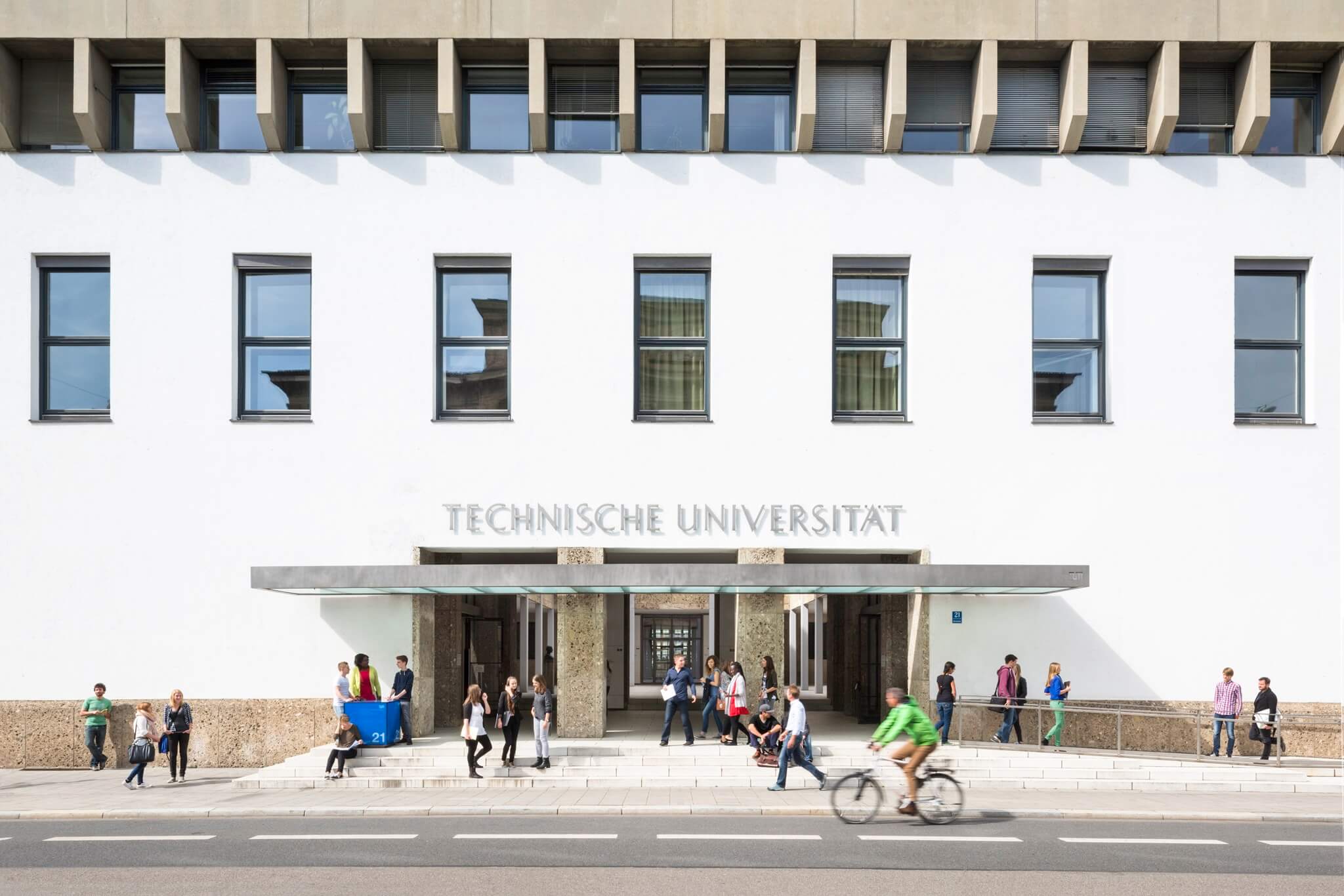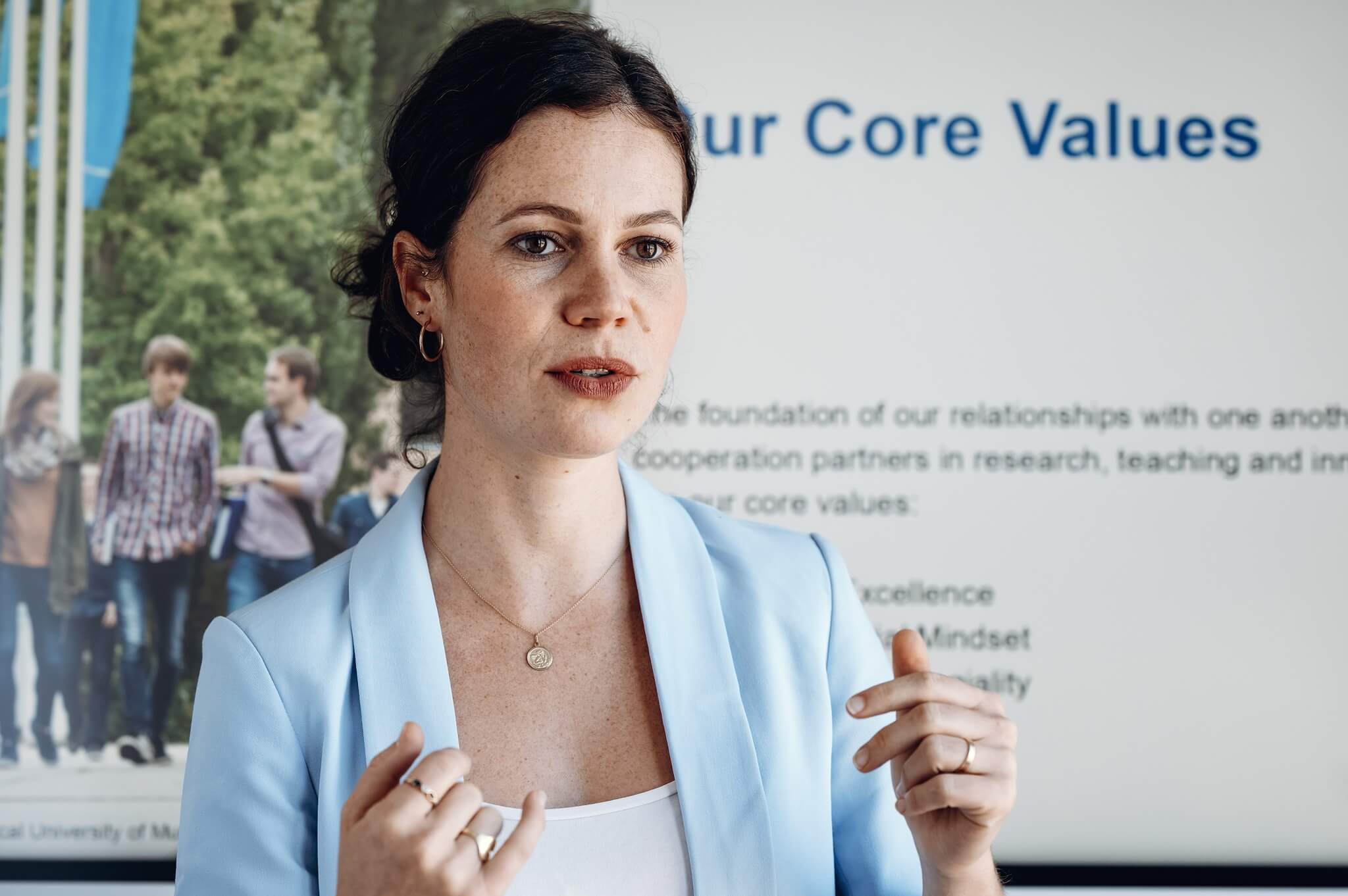MBAs & Masters
Advance your professional development with a degree from the Technical University of Munich.

Why go back to university?
In today’s dynamic work environment, knowledge renews even faster than in previous generations. Continuous learning is therefore essential for professionals to stay competitive.
At the Technical University of Munich, we believe we are responsible for making the latest findings and cutting-edge scientific research accessible to professionals.
Our degree programs aim to empower you to transfer new academic knowledge into practice, upskill in interdisciplinary areas such as management and leadership, and get familiar with new technologies to become thought leaders in your field.
Join our vibrant learning community, where you can expand your academic knowledge and acquire and practice new skills. Benefit not only from our excellent lecturers from academia and business but also from the diverse experiences of your fellow students. This open exchange with like-minded professionals from different backgrounds will enrich your learning journey and open doors to new networks and opportunities.

Why a degree from TUM?
Open up new career opportunities with a Master of Science (M.Sc.) or Executive Master of Business Administration (MBA) awarded by the Technical University of Munich (TUM). TUM is not only one of the first universities in Germany to be honored as a University of Excellence, but it also regularly occupies top positions among German and European universities in national and international rankings, such as the Shanghai Ranking, QS, THE, and the Global Employability Ranking. With a vision to lead as one of Europe’s most entrepreneurial universities, TUM is dedicated to excellence in research and teaching.

Furthermore, studying at TUM will immerse you in Munich’s unique technological, entrepreneurial, and international ecosystem. The city’s thriving job market offers plenty of attractive career opportunities, especially in industries like automotive, tech, and financial services. With its supportive business infrastructure and Europe’s best start-up hub the UnternehmerTUM, Munich is also an ideal location for aspiring founders. Both Sundar Pichai, CEO of Google, and Tim Cook, CEO of Apple, recently selected the Bavarian capital for new development centers, favoring it over well-established international tech hubs.
The city’s recognition is further highlighted by its fifth place worldwide in the 2024 QS Best Student Cities ranking. The high quality of life, the rich cultural heritage, and the proximity to recreational activities in the mountains of the Alps are additional reasons to consider studying at the Technical University of Munich.
Overview of the Professional & Executive Master Programs

Executive MBA Programs

Professional Master Programs

Info Sessions
Find the right program for you.
Other areas that might interest you

For Organizations

Certificate Programs
You are currently viewing a placeholder content from Facebook. To access the actual content, click the button below. Please note that doing so will share data with third-party providers.
More InformationYou need to load content from reCAPTCHA to submit the form. Please note that doing so will share data with third-party providers.
More InformationYou are currently viewing a placeholder content from Instagram. To access the actual content, click the button below. Please note that doing so will share data with third-party providers.
More InformationYou are currently viewing a placeholder content from X. To access the actual content, click the button below. Please note that doing so will share data with third-party providers.
More Information